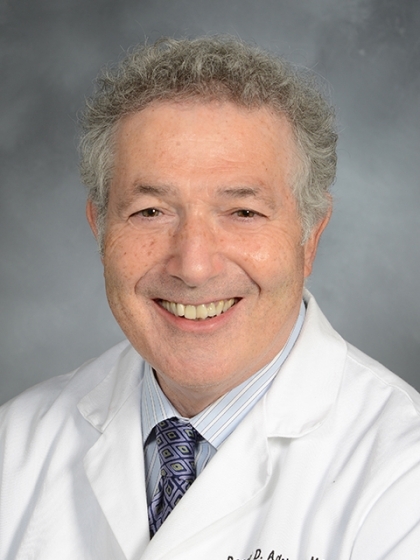
Dr. Ron Adelman
The students' idea was bold and ambitious: create a journal that would showcase the humanities in a Weill Cornell Medical College community focused more on medicine than media.
Two years later, student editors and faculty advisors of Ascensus say the journal has created a dialogue through which students, residents and attending physicians can reflect on their experiences in medicine by creating works of art.
"Ascensus is a dream come true for all of us," said Dr. Ron Adelman , co-chief of the Division of Geriatrics and Gerontology, the Emilie Roy Corey Professor of Geriatrics and Gerontology, professor of clinical medicine and executive director of Weill Cornell's Liz Claiborne Center for Humanism in Medicine, which along with Academic Affairs helps support the journal. "It is a celebration of the extraordinary creativity of our medical trainees. Ascensus is a vehicle for revelation, a search for truth and meaning in medicine, and an important approach to understand the art of healing."
Ascensus — which in Latin means "rise" — debuted last year as a collection of student-produced art, poetry, photographs and musings. Acclaimed across campus not just for its variety and creativity, but for its highlighting of talents that may not be obvious in its contributors' lives as students, the journal expanded for its second edition this fall and now includes work from faculty, housestaff and graduate students.
"It's been very exciting to watch our efforts grow, thanks to the contributions and interest from the community at large," said Dan Shalev, a third-year medical student, associate editor and co-founder of Ascensus.
Among the more than 60 works of art featured in this year's edition is "Snow Over Weill," a photograph of 1300 York Ave. shot from the roof of Olin Hall during the February 2012 blizzard by second-year medical student Jordan Roberts. The photo was selected as the cover for this year's Weill Cornell Medical College holiday card.
The edition also includes short stories, drawings and skits.
The journal is the brainchild of four Weill Cornell students — Shalev, fourth-years Peter Barish and Jonathan Huggins, and Elan Guterman '13. Brought together by their passion for all things creative and literary, the students realized that humanities at Weill Cornell were segmented. While the Liz Claiborne Center for Humanism in Medicine develops and supports programs that invoke the humanities, there was no central vehicle through which medical students could express themselves as they transitioned from lay people to medical professionals.
Working with faculty advisors Dr. Randi Diamond, assistant professor of medicine and director of the Liz Claiborne Center, and Dr. Susan Ball, associate professor of clinical medicine and associate professor of clinical public health, they set out to create a space where students could share and reflect on their experiences as doctors in training.
Their efforts gave way not only to Ascensus, but a new year-long elective for third-year students that uses reflection and narrative medicine to address some of the difficulties associated with transitioning to clinical clerkships — patient death and hierarchies in medicine among them.
"When we began working on this project, we didn't have a centralized resource for students to learn about humanities opportunities; we didn't have an opportunity for third-year clerkship students to incorporate the skills of reflective practice and narrative medicine into their major clinical year," Shalev said. "Now, in just a few short years, we've managed to get all of these initiatives up and running, which has been incredibly exciting and gratifying."
To submit work for the next edition of Ascensus, email wcmc.lit@gmail.com by April 1. The editors in chief are Gaurav Ghosh '16 and Rachael Venn '16. Associate editors are Natasha Mehta '16, Barish, Guterman, Huggins and Shalev.
